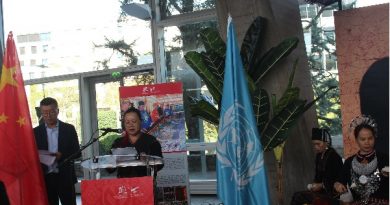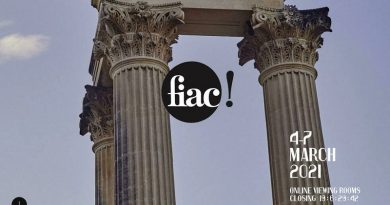美欧日三方联合声明(六)巴黎2019年5月23日
部长重申了共同关切,审查了进行的工作,并同意加强在华盛顿、纽约和巴黎发布的部长级声明中所涵盖的所有领域的合作,包括非市场政策和做法,市场导向条件,产业补贴和国有企业,WTO改革,以及数字贸易和电子商务。
在今天的会议上,部长们特别讨论了:
产业补贴方面,部长们欢迎文本工作讨论方面取得的进展,这些工作涉及提高透明度、识别有害补贴,并确保可以使用更严格的处理和适用适当的基准。部长们指示其工作人员继续努力完成关于这些问题及其他问题的三方文本工作,以便与其他主要的世贸组织成员进行接触,就加强产业补贴和国有企业纪律进行谈判。三方同意加强与WTO主要成员方的联系,以加强产业补贴规则来解决市场扭曲问题。三方欢迎目前三方在WTO争端中达成的关于非市场扭曲和公共机构补贴方面的密切合作。
强制技术转让方面,部长们确认他们目前在执法、新规则制定、国家安全目的的投资审查以及出口管制等领域的一致意见,并进一步就合作进行评估。
部长们确认正在进行投资审查机制的三方合作,并欢迎有关当局加深合作,包括分享风险分析和缓解方法的最佳做法。
WTO改革方面,三方在4月份与其他成员方向货物贸易理事会递交了修订后的透明度和通知提案,部长们同意加强与其他贸易伙伴的接触,以增强WTO成员对现有WTO通知义务的遵守,旨在尽早达成协议。三方确认同意推动各常规委员会活动。部长们欢迎WTO正在进行的关于解决当前和未来世贸组织谈判中的特殊和差别待遇的讨论。他们再次呼吁声称具有发展中国家地位的发达的WTO成员方在WTO正在进行和未来的谈判中做出完全承诺,并称赞一些世贸组织成员方已经表明意图这样做。
部长们呼吁出口信贷国际工作组加快工作,以期到2020年就新的国际出口融资纪律达成共识,以便为出口信贷提供公平的竞争环境。
部长们欢迎2019年1月25日在达沃斯发布的《关于电子商务的联合声明》,并确认他们承诺在尽可能多的WTO成员的参与下寻求达成高标准协议。
部长们期待在日本担任G20轮值主席期间,为G20贸易和数字经济部长级会议和钢铁产能过剩全球论坛进一步合作。
Joint Statement of the Trilateral Meeting of the Trade Ministers of the United States, European Union, and Japan
05/23/2019
Paris, May 23, 2019
Ambassador Robert E. Lighthizer, United States Trade Representative, Mrs. Cecilia Malmström, European Commissioner for Trade, and Mr. Hiroshige Seko, Minister of Economy, Trade and Industry of Japan, met in Paris on May 23, 2019.
The Ministers advanced discussions on their shared objective to address non market-oriented policies and practices of third countries that lead to severe overcapacity, create unfair competitive conditions for their workers and businesses, hinder the development and use of innovative technologies, and undermine the proper functioning of international trade and discussed various tools needed to deal with these problems.
They reiterated their concerns, reviewed ongoing work, and agreed to deepen their cooperation in all areas covered by the Ministerial Statements issued in Washington DC, New York, and Paris, including nonmarket policies and practices, market-oriented conditions, forced technology transfer policies and practices, industrial subsidies and state-owned enterprises, WTO reform, and digital trade and e-commerce.
In today’s meeting, the Ministers discussed in particular:
On concerns with non-market oriented policies and practices, Ministers took stock of the intensification of the exchange of information between them, the identification of additional criteria indicating that market-oriented conditions exist, and confirmed that market-oriented conditions are fundamental to a fair, mutually advantageous global trading system and that their citizens and businesses operate under market-oriented conditions. The Ministers also confirmed their commitment to continue working together to maintain the effectiveness of existing WTO disciplines, including through ongoing WTO disputes.
The Ministers shared growing concerns about third parties’ developing State Enterprises into national champions, disrupting market-oriented trade, and directing those State Enterprises to dominate global markets. The Ministers also shared growing concerns about the non-market advantages and non-market domestic behavior of State Enterprises that result in distortions that negatively affect farmers, workers, and enterprises in the Ministers’ home countries. The Ministers affirmed their commitment to effective means to address these concerns and, to this end, deepen discussions on enforcement and rule-making as tools to address these problems.
On industrial subsidies, Ministers welcomed the progress made in discussions on text-based work on increasing transparency, identifying harmful subsidies that merit stricter treatment and ensuring that appropriate benchmarks can be used. Ministers instructed their staff to continue efforts to finalize trilateral text-based work on these and other issues in order to engage with other key WTO Members with the aim of initiating negotiations on stronger disciplines on industrial subsidies and state-owned enterprises. They also agreed to increase outreach to key WTO Members on the need to strengthen industrial subsidies rules to address market distortions. They also welcomed the close cooperation they have developed in the context of WTO disputes addressing non-market distortions and subsidies through public bodies.
In the area of forced technology transfers, Ministers confirmed their agreement to cooperate on enforcement, on the development of new rules, on investment review for national security purposes, on export controls and further take stock of this cooperation.
Ministers confirmed ongoing trilateral cooperation on investment review mechanisms and welcomed deepening cooperation among the relevant authorities, including through the sharing of best practices on risk analysis and mitigation methods.
On the reform of the WTO, the three partners submitted a revised transparency and notification proposal to the Council for Trade in Goods in April with other co-sponsors, and the Ministers agreed to intensify engagement with other trading partners to advance this proposal in a manner that increased WTO Member compliance with existing WTO notification obligations aiming at an agreement at the earliest possible timing. They confirmed their agreement to work towards strengthening the regular committees’ activities. The Ministers welcomed the ongoing discussion in the WTO on addressing special and differential treatment in current and future WTO negotiations. They reiterated their call on advanced WTO Members claiming developing country status to undertake full commitments in ongoing and future WTO negotiations and applauded that some WTO Members have indicated their intent to do so.
The Ministers call on the International Working Group on Export Credits to accelerate its work with a view to reach consensus on the new international export finance disciplines by 2020 in order to level the playing field for export credits.
Ministers welcomed the Joint Statement on Electronic Commerce issued in Davos on 25 January 2019 and confirmed their commitment to seek to achieve a high standard agreement with the participation of as many WTO Members as possible.
The Ministers look forward to further cooperation for the G20 Ministerial Meeting on Trade and the Digital Economy and the Global Forum on Steel Excess Capacity under the Japanese G20 Presidency.






